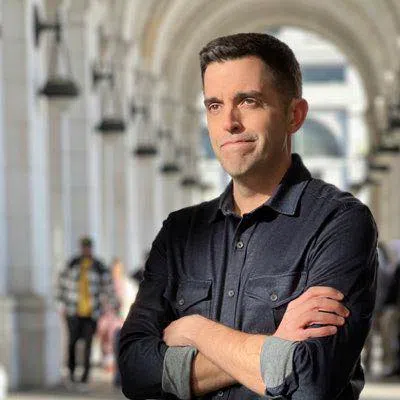As concerns over global warming are beginning to cool — even among former climate alarmists — climate scientists are changing course and predicting that an ice age may now be in our future, bringing us full circle.
Some of us may remember actor Leonard Nimoy’s presentation of, “In Search Of The Coming Ice Age” in 1978.
Now the New York Post reported that a joint research project, conducted by scientists working in China and the United States, concluded that several of the Earth’s oceanic currents, including the Gulf Stream, could be near collapse.
The Gulf Stream carries warm water north from the equator, along the U.S. east coast, then across the Atlantic to England.
The study, published in the journal Communications Earth & Environment, included a strange conclusion: They predicted, “dramatically raising sea levels” — the same thing that was supposed to accompany global warming.
But in between the two ice age predictions of the late 1970s and today, scientists have made all sorts of doom and gloom estimates, as noted by novelist and columnist Jon Gabriel.
“Over the years, I’ve been told the following eco-disasters would destroy earth (in order),” he began, “New Ice Age, Acid Rain, Ozone Hole, Global Warming, Global Weirding, Climate Change, New Ice Age.
“The solution for each was to give the UN more power, end capitalism, and expand government.”
That’s just in the last 50 years. Scientists have been making similar wild predictions since at least 1895, when The New York Times reported that, “Geologists Think the World May Be Frozen Up Again.”
And every time they make these wild predictions, the rest of is pay the price. We felt it especially during the previous administration’s response to the global warming scare.
For instance, the Inflation Reduction Act authorized approximately $891 billion in total spending, including around $391 billion for energy and climate change with the goal of attaining net zero carbon emissions by 2030.
The theory was that carbon dioxide acted as a greenhouse gas, one that permitted the sun to heat the planet, but prevented the hear from escaping into the atmosphere.
But apart from the spending was the cost to manufacturers, especially automakers, who had to meet increasingly stringent emission standards, and were required to offer products that the public had little interest in — electric vehicles.
The public, however, is cooling on the subject of climate change.
The results of a Gallup poll released last month indicated that a mere 2% of American voters consider climate change a top issue, and only 17% believe that “climate change will affect my home area” — including just 27% of Democrats.
The people and wildlife who have suffered with the consequences of climate alarmism may be especially fed up. They include:
- Southern Californians who have to put up with energy brownouts every summer
- Texans affected by the winter 2021 energy blackout caused by frozen wind turbines
- Birds, including American bald eagles, killed by wind turbine blades
- Whales along the northeast Atlantic coast that become confused from sounds emitted by offshore wind farms and end up washed up on the beach
- American consumers stuck with new “energy efficient” appliances that give us dingy clothes and don’t properly wash dishes
Microsoft founder Bill Gates has always been one of climate change’s top proponents.
Although he still believes it’s an important issue, he considers other issues to be more pressing, and criticizes a “doomsday view,” of the climate.
“People will be able to live and thrive on Earth for the foreseeable future,” Gates said.
Former Vice President Al Gore may be the only American to have profited from climate alarmism. His book and film, “An Inconvenient Truth” resulted in a 2007 Nobel Peace Prize, an Academy Award for the same year, and made him a multi-millionaire.
He used part of his wealth to purchase a number of homes, including a huge colonial estate in Nashville, a Mediterranean-style villa in Montecito, California, and a condo in San Francisco.
Although there’s nothing wrong with owning multiple homes, he’s been criticized because his high energy consumption is at odds with his climate sermons.
Maybe he knows it’s all nonsense.
President Trump definitely does, and announced that climate alarmism would be a thing of the past, bringing to mind a quote from President Gerald R. Ford a half-century earlier.
“Our long national nightmare is over,” Ford said at his inauguration on August 9, 1974.
Let’s hope so.
Correcting a problem that doesn’t exist is frustrating, expensive, and makes life miserable.
Michael Dorstewitz is a retired lawyer and is a frequent contributor to Newsmax. He’s also a former U.S. Merchant Marine officer and a Second Amendment supporter. Read Michael Dorstewitz’s Reports — More Here.
© 2025 Newsmax. All rights reserved.



